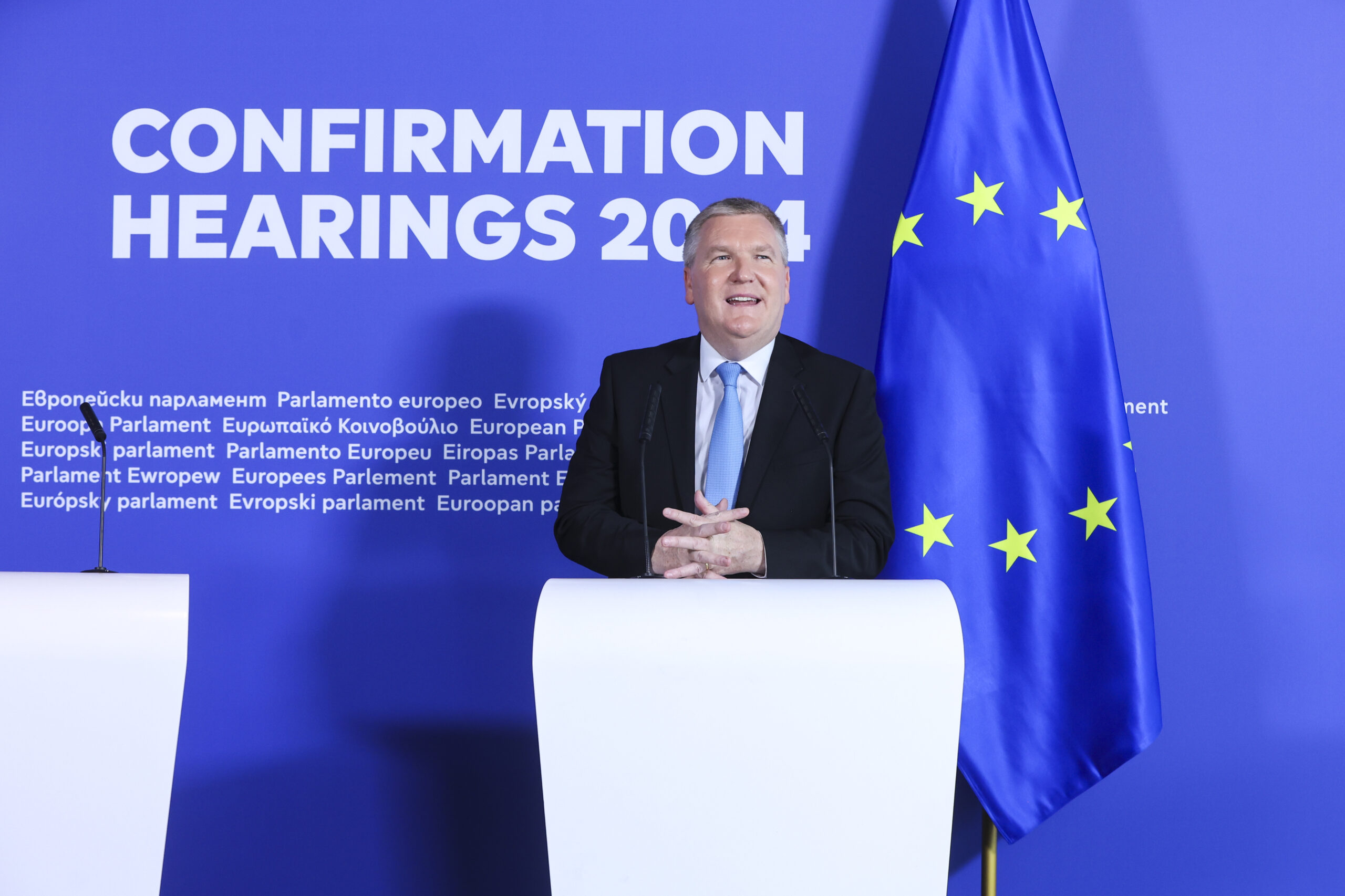Hearing of Commissioner-designate Michael McGrath
 © European Union 2024 - Source : EP
© European Union 2024 - Source : EP Michael McGrath, Irish candidate for the Democracy, Justice and the Rule of Law portfolio, was questioned by three parliamentary committees on Tuesday morning.
The chairs and political group coordinators of the committees on Civil Liberties, Justice and Home Affairs (LIBE), Internal Market and Consumer Protection (IMCO) and Legal Affairs (JURI), will meet without delay to assess the performance and qualification of the Commissioner-designate.
Democracy, fundamental rights and the rule of law
In his opening statement, Michael McGrath said he would introduce a so-called “Democracy Shield” against information manipulation and foreign interference and emphasised that compliance with the EU Charter of Fundamental Rights should be a precondition for the benefits of Union membership. He outlined plans to reinforce the link between the respect of the recommendations of the annual Rule of Law report and access to EU funds.
Mr McGrath also committed to upholding the EU’s legal order and respect the Court of Justice as the ultimate arbiter for EU legislation, replying to MEP concerns relating to the primacy of EU law, and promised to help strengthening Parliament’s voice in Article 7 procedures.
Consumer protection, digitalisation
If confirmed, the Commissioner-designate would like to develop the Digital Fairness Act to prevent consumers from exploitation, make sure that influencers are not misleading them, and that children are protected. He also plans to address the problem of digital subscriptions, which are often difficult to cancel.
When MEPs questioned Mr McGrath about his plans to protect minors online, he committed to fight harmful practices EU consumers face online (such as addictive design and dynamic pricing) and protect them from low quality products sold online.
The future of GDPR also featured prominently in the debate, with Mr McGrath referring to the upcoming binding opinion by the Data Protection Board on the use of personal data in AI as a key next step.
Justice
Mr McGrath told MEPs he would prepare the first-ever EU strategy to fight corruption. Responding to questions about the upcoming Victims’ Rights Directive, Mr McGrath asked for Parliament’s support in the negotiations to safeguard important elements of the Commission’s proposal. He also committed to work to protect women from violence, including through the implementation of recently adopted new rules. The digitalisation of courts also featured prominently as a priority in the exchange.
Media freedom
In his replies to MEPs’ questions, the Commissioner-designate promised to work hard on media freedom and the protection of journalists, especially through the robust implementation of the Media Freedom Act and the anti-SLAPP Directive. He also committed to upholding the freedom of expression, stressing that this right is however not absolute and “we cannot tolerate hateful speech.”
Support to EU firms
Reacting to MEPs’ questions on reducing red tape for companies and new reporting requirements under the Due Diligence Directive, the Commissioner-designate acknowledged the need to provide the Commission guidelines quickly to “make it as easy for companies as possible to comply” with new requirements. He intends to strengthen the trust of companies in the EU legal environment, not least through the digitalisation of courts to cut down on costs and administrative burden. He also wants to ensure balance between firms’ liability rules and the protection of citizens’ rights to help innovative companies grow.
Press point
At the end of the hearing, the Chair of the Committee on Civil Liberties, Justice and Home Affairs Javier Zarzalejos (EPP, ES), the Chair of the Committee on Internal Market and Consumer Protection Anna CAVAZZINI (Greens/EFA, DE), and the Chair of the Committee on Legal Affairs lhan Kyuchyuk (Renew, BG) held a press point outside the meeting room.
Next steps
Based on the committee recommendations, the Conference of Presidents (EP President Metsola and political group chairs) is set to conduct the final evaluation and declare the hearings closed on 21 November. Once the Conference of Presidents declares all hearings closed, the evaluation letters will be published.
The election by MEPs of the full college of Commissioners (by a majority of the votes cast, by roll-call) is currently scheduled to take place during the 25-28 November plenary session in Strasbourg.
